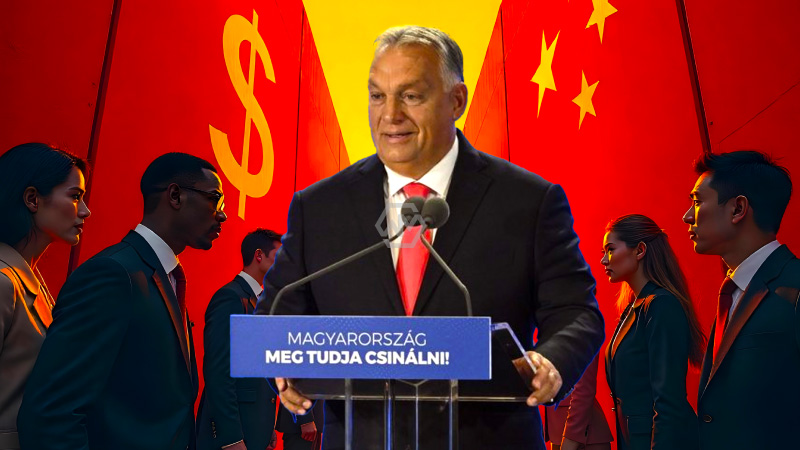- Hungary’s Orban cautions against EU tariffs on Chinese-made electric vehicles.
- The EU considers imposing up to 45% tariffs, risking retaliation from China.
- Hungary positions itself as a neutral player, strengthening trade ties with China.
Hungarian Prime Minister Viktor Orban has expressed concerns about the European Union‘s potential tariffs on Chinese-made electric vehicles (EVs), warning that such a move could escalate into an “economic cold war” with China.
While many EU nations are pushing to reduce their dependence on China, Orban’s Hungary has embraced Chinese investment, particularly in the manufacturing sector.
Hungary Caught Between EU and China in Escalating Trade Dispute
As the European Union moves towards potentially imposing tariffs on Chinese-made electric vehicles, Hungarian Prime Minister Viktor Orban has voiced strong opposition, warning of the risk of an “economic cold war” between the EU and China. Orban’s comments come as the EU considers tariffs of up to 45% on EV imports, a move meant to safeguard European automakers but likely to provoke retaliatory measures from Beijing.
Hungary’s relationship with China has deepened in recent years, with billions of euros in investments from Chinese companies like CATL and BYD, which are setting up major production plants in Hungary. This makes the country one of China’s key European allies, and Orban has been vocal in his support for maintaining open trade with Beijing. His strategy diverges from other EU nations that are seeking to reduce reliance on Chinese imports and shift towards more domestic or Western alternatives.
The tension between Hungary’s growing dependence on Chinese investments and the EU’s potential trade war with China is evident. Orban has stressed the importance of keeping Hungary economically neutral, warning that a divided global economy could harm the country’s ability to sell products abroad. Meanwhile, the U.S. has raised concerns about Hungary’s closeness to China, arguing that such ties could jeopardize Hungary’s long-term sovereignty and standing within the Western alliance.
The EU’s decision on tariffs comes at a time when Hungary’s economy is already under pressure, with a sharp decline in industrial output due to weaknesses in Germany, Hungary’s primary export market. As Hungary seeks alternatives to EU funding, which has been suspended over rule of law concerns, the country is increasingly looking to China for financial support. The future of Hungary’s economic strategy will likely be shaped by the outcome of the EU’s vote on Chinese EV tariffs and the broader implications for EU-China trade relations.
Hungary’s balancing act between EU trade policies and deepening economic ties with China will be critical in shaping its future. Orban’s stance highlights the growing complexity of global trade dynamics, as nations are forced to choose between economic partnerships and political alliances.
“Doing business with China comes with strings attached, and the interest is often paid in sovereignty.” – U.S. Ambassador to Hungary, David Pressman



